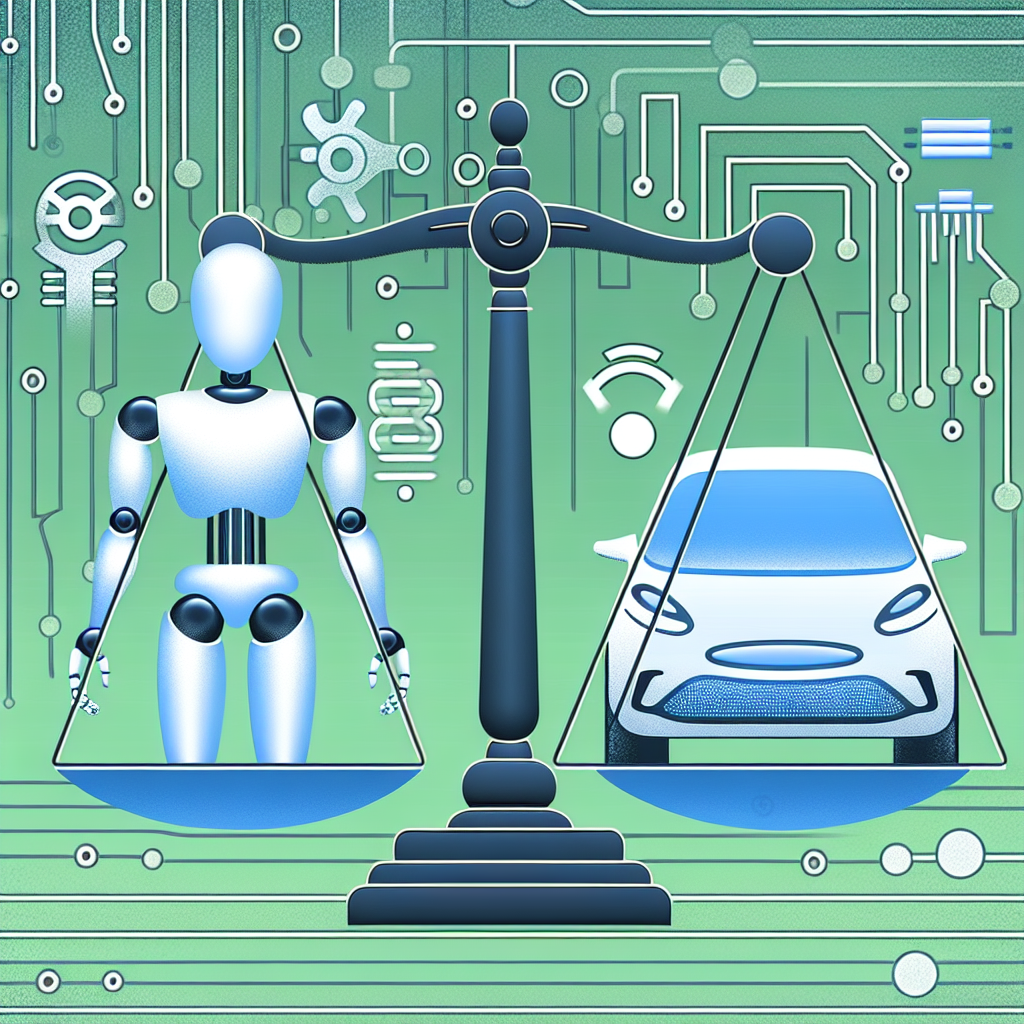The Ethics of AI in Autonomous Vehicles
Artificial intelligence (AI) has transformed the way we live, work, and interact with technology. One of the most promising applications of AI is in autonomous vehicles, which have the potential to revolutionize transportation and make our roads safer. However, the use of AI in autonomous vehicles raises a number of ethical concerns that must be addressed before these vehicles can become widespread on our roads.
One of the primary ethical concerns surrounding AI in autonomous vehicles is the issue of accountability. Who is responsible when an autonomous vehicle is involved in an accident? Is it the manufacturer of the vehicle, the programmer of the AI system, or the owner of the vehicle? This is a complex issue that has yet to be fully resolved, but it is crucial to establish clear guidelines for accountability in order to ensure that all parties involved in the development and use of autonomous vehicles are held responsible for any accidents that may occur.
Another ethical concern is the issue of decision-making in autonomous vehicles. Autonomous vehicles are programmed to make split-second decisions in potentially dangerous situations, such as when a pedestrian suddenly steps into the road. How should these decisions be made? Should the vehicle prioritize the safety of the occupants, or should it prioritize the safety of others on the road, such as pedestrians and cyclists? This is a difficult ethical dilemma that must be carefully considered in the development of AI systems for autonomous vehicles.
Privacy is another major ethical concern when it comes to AI in autonomous vehicles. These vehicles are equipped with a wide range of sensors and cameras that collect data on their surroundings, as well as on the occupants of the vehicle. How should this data be used and stored? Who has access to this data, and how can we ensure that it is kept secure and private? These are important questions that must be addressed in order to protect the privacy of individuals who use autonomous vehicles.
Finally, there is the issue of job displacement. The widespread adoption of autonomous vehicles has the potential to disrupt the transportation industry, leading to job losses for millions of truck drivers, taxi drivers, and other transportation workers. How can we ensure that these individuals are not left behind in the transition to autonomous vehicles? This is a complex ethical issue that must be addressed in order to ensure a fair and just transition to this new technology.
In conclusion, the use of AI in autonomous vehicles has the potential to revolutionize transportation and make our roads safer. However, there are a number of ethical concerns that must be addressed in order to ensure that these vehicles are developed and used in a responsible and ethical manner. By carefully considering issues such as accountability, decision-making, privacy, and job displacement, we can ensure that the benefits of autonomous vehicles are realized without compromising our ethical principles.
FAQs
Q: Who is responsible when an autonomous vehicle is involved in an accident?
A: This is a complex issue that has yet to be fully resolved. However, it is crucial to establish clear guidelines for accountability in order to ensure that all parties involved in the development and use of autonomous vehicles are held responsible for any accidents that may occur.
Q: How should decisions be made in autonomous vehicles?
A: Autonomous vehicles are programmed to make split-second decisions in potentially dangerous situations. This is a difficult ethical dilemma that must be carefully considered in the development of AI systems for autonomous vehicles.
Q: What are the privacy concerns surrounding AI in autonomous vehicles?
A: Autonomous vehicles are equipped with a wide range of sensors and cameras that collect data on their surroundings, as well as on the occupants of the vehicle. How should this data be used and stored? Who has access to this data, and how can we ensure that it is kept secure and private?
Q: What are the potential job displacement issues with the widespread adoption of autonomous vehicles?
A: The widespread adoption of autonomous vehicles has the potential to disrupt the transportation industry, leading to job losses for millions of truck drivers, taxi drivers, and other transportation workers. This is a complex ethical issue that must be addressed in order to ensure a fair and just transition to this new technology.

